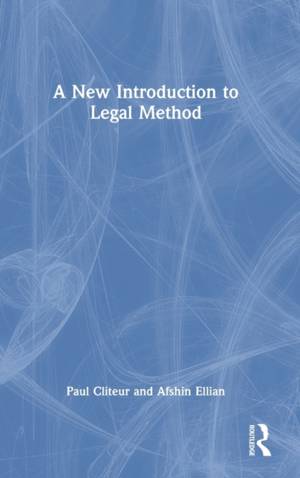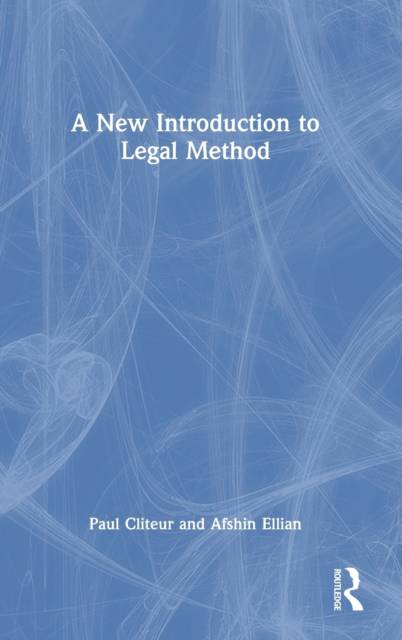
- Retrait gratuit dans votre magasin Club
- 7.000.000 titres dans notre catalogue
- Payer en toute sécurité
- Toujours un magasin près de chez vous
- Retrait gratuit dans votre magasin Club
- 7.000.000 titres dans notre catalogue
- Payer en toute sécurité
- Toujours un magasin près de chez vous
Description
A New Introduction to Legal Method provides a comprehensive overview of legal science and the scientific character of legal knowledge.
In five chapters, the book analyses and explores: (i) legal methodology in general, the main features of different schools of thought, and the nature of science in general; (ii) American realism, which offers an ideal starting point for law students to reflect on the material they are about to study critically; (iii) rationalism, empiricism, and logical positivism, in particular the work of Karl Popper; (iv) criticisms of essentialism; (v) the ideological and philosophical background of contemporary liberal interpretation. The inclusion of Dutch, French, and German literature sources makes this law title differ from previous writings on legal science.
This textbook is ideal for students of legal method, and will be of great interest to those studying legal science, jurisprudence, legal research, and legal skills.
Spécifications
Parties prenantes
- Auteur(s) :
- Editeur:
Contenu
- Nombre de pages :
- 230
- Langue:
- Anglais
Caractéristiques
- EAN:
- 9781032252964
- Date de parution :
- 05-04-22
- Format:
- Livre relié
- Format numérique:
- Genaaid
- Dimensions :
- 156 mm x 234 mm
- Poids :
- 512 g







